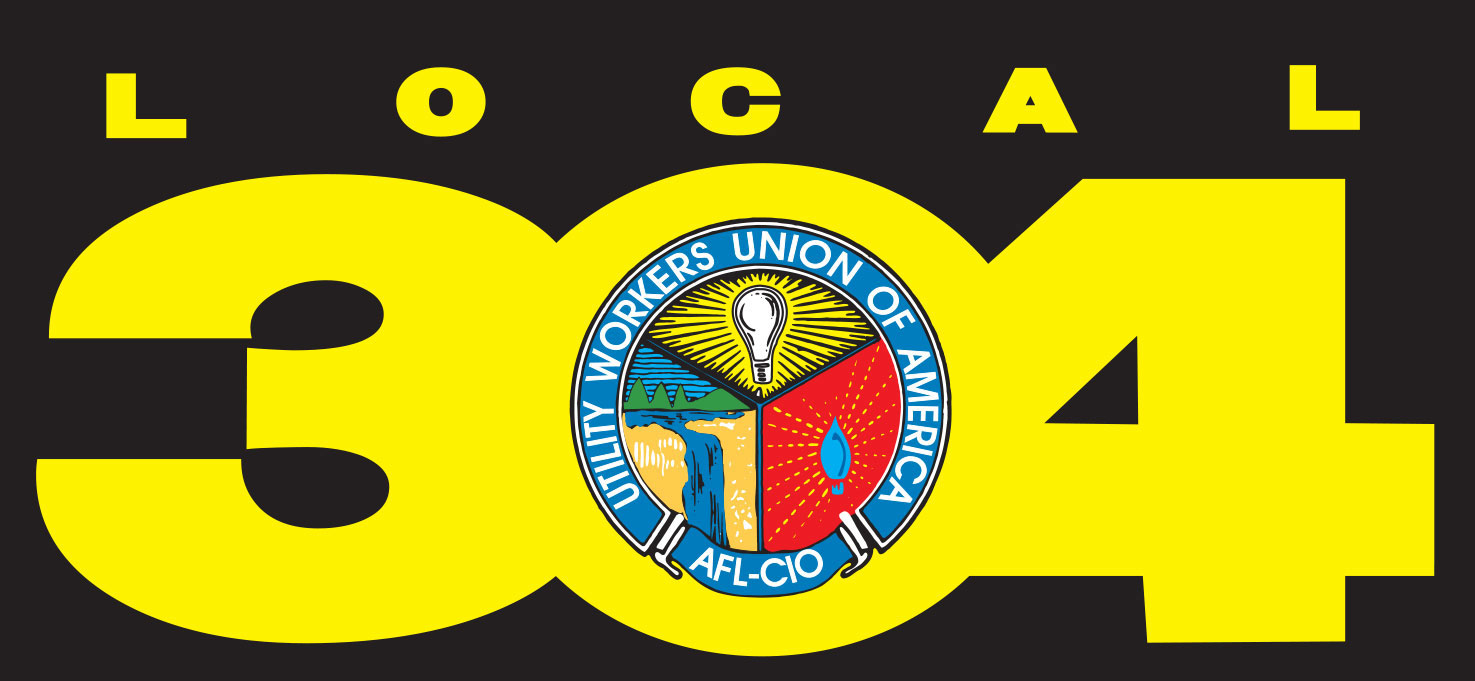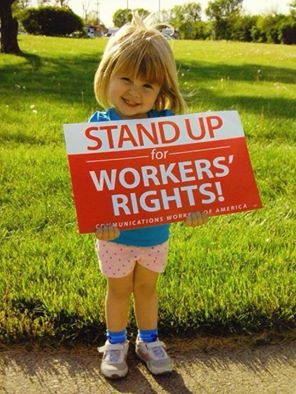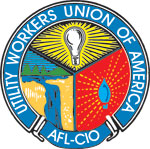Why Union Jobs Matter!
There can be no doubt that there were more than the candidates taking center stage in the 2016 Election. Ahead of all the candidates and issues was a force greater than the accumulated individual parts and pieces. That force was anger.
Though almost 50% of Americans stayed home on Election Day, either due to apathy caused by the belief that their choice didn’t matter, or a fundamental feeling that they don’t matter; the rest of the voting public battled openly and advocated loudly for their choice of candidate.
The candidates themselves seemed fatally flawed. One candidate, a product of the ultra-rich elite who rode the back of political maverick and outsider; the other a well known face and political powerhouse whose service in her many posts and positions left a polarizing effect in the minds of the electorate.
To many, even of her own party, Hillary Clinton was the same as having no choice at all. Surprisingly, many in the other party viewed Donald Trump’s candidacy with the same ire and misgivings. Both Presidential hopefuls burned away the long standing colors associated with either party, colors thoroughly bleached out by the white hot anger of the voting public.
So why are Americans so angry?
Of all the issues broached during the 2016, income inequality was the one that resonated the most. The messenger, an old time radical and self described Democratic Socialist, became the lightening rod that energized his adopted party’s message. As the Democratic campaign wore on, Clinton’s rhetoric slowly began to change to the point of her trying to sound like Bernie Sanders.
Regardless of party affiliation, the message of income inequality was one that cut across those hard drawn party lines. The bottom line for almost all voters was that the American public is tired of paying high taxes to a government that seems to takes them for granted.
It’s a fact that unions built middle class America. Unions gave workers a voice, and that voice demanded that the people actually doing the work, while not getting rich, should at least be able to live decent lives and provide adequately for their families.
However, the attack on those wages and benefits that combine to make up a job that makes work pay are relentless. Americans were warned back during Bill Clinton’s Presidency about so called “Free Trade” (NAFTA, CAFTA, …) agreements, that the intent of exporting American economic success would open the door to importing third world wages and working conditions by trying to compete in markets that exploited workers and regimes that did not respect the rules of business, human rights, or the rule of law, in general.
Falling wages and decreased opportunities have hit the middle class hard. In households that are lucky enough to have one breadwinner with a good job, there is a drain on that family’s income in supporting immediate family who can’t find work that provides a decent living.
Forget the toys and hobbies many adults indulge in, more and more it’s taking both parents working full time to earn enough just to survive. Parents are juggling mortgages, bills, tuition, taxes, and everything else that takes cash to plug the holes that seems to always crop up. It seems that everything in our society is geared at squeezing more out of those who contribute the most.
This brings us back to the original problem, income inequality. This is where we see the great chasm that form up the two competing political philosophies.
One side blames social programs and handouts for our ballooning deficit, a situation promoted by the advocates of a progressive agenda.
The other side says corporate welfare and greed is to blame for the woes facing us as a nation.
One side wants to double down on trickle-down economics with yet even more tax breaks for the rich, while the other wants to return us to a system that punishes the successful with an aggressive tax hike. Neither side wants to compromise, so our country limps along in “safe mode” with no end in sight.
Unions are more relevant than ever. We are the frontline that fights for all workers. We fight for wages, working conditions, pensions, and most of all, safety.
 Whether you realize it or not, unions affected your employment at Harrison long before 304 certified as a union in 2010. Before 304, we had UWUA System Local 102 to our north, and Rivesville was union. These facts directly contributed to what wages and benefits would be set for Harrison. Rivesville’s union succumbed to fear of plant closure and a slick campaign that undermined the union and the company was able to bust that union. This left only System Local 102 as the gatekeeper protecting wages and benefits for Harrison. Since 2010, we’ve seen System Local 102 almost reduced to a lineman’s union with the closure of all the plants in their jurisdiction.
Whether you realize it or not, unions affected your employment at Harrison long before 304 certified as a union in 2010. Before 304, we had UWUA System Local 102 to our north, and Rivesville was union. These facts directly contributed to what wages and benefits would be set for Harrison. Rivesville’s union succumbed to fear of plant closure and a slick campaign that undermined the union and the company was able to bust that union. This left only System Local 102 as the gatekeeper protecting wages and benefits for Harrison. Since 2010, we’ve seen System Local 102 almost reduced to a lineman’s union with the closure of all the plants in their jurisdiction.
This is why UNION JOBS MATTER!
304 has been pushed into the position of being the primary defenders of what wages and benefits will be for plants in our geographical area. We’ve had a lot of help, from an embattled System Local 102, our longest and most loyal ally. As we’ve grown, we’ve also found new allies, such as UGWU Local 69 at Dominion and UWUA Local 537 representing employees of West Virginia American Water. We’ve also formed bonds with other unions within our merged company, most notably UWUA Local 270, as well as other trade unions.
304 is able to form these relationships because when we talk to other unions it’s blatantly obvious that we are not alone in the challenges and issues we all face. We have more in common than we do differences, making it clear that we can only face these challenges effectively as a united front and by looking out for each other.
Bargaining power comes from SOLIDARITY!
How many people have YOU, as a union member, helped, or are helping, because of the financial resources of having a good UNION job allows you? How many in your family depend on those wages and benefits you are able to provide them?
This why it is so important that you are UNION!
As a member of the UWUA, you take your place among other serious professionals who are our union Brothers and Sisters, whether they be teachers, firefighters, machinists, laborers, carpenters, pipefitters, ironworkers, steelworkers, electricians, auto workers, painters and plasters, and many others who long ago realized that as workers we have to band together to protect each other from those business forces that seek to make all of us economic wage slaves.
UNION JOBS MATTER!
Union is a union is a union…
You may have noticed, especially on our Facebook page, that when UWUA Local 304 reports union news, it may not be a UWUA union.
Confused?
This is because the one guiding principal behind EVERY union is workers standing together for the betterment of all. Sure, many unions have their own unique ways they handle administrative details, have their own take on organizing and showing action, but each one, at it’s core, are just working people taking a direct hand in protecting and serving each other.
We are all familiar with the Boilermakers, Ironworkers, Pipefitters, Carpenters, Laborers, Millrights, Operating Enigineers, Miners, and Electricians we work with everyday, but there are many other unions that represent the people in their own professions. Teachers, nurses, firefighters, police, railroad workers, machinists, Food and Commercial workers, Service Employees, Office Professionals, Autoworkers, and many many others who do their part in their respective fields.
Being union, and having that special legal status, tells the world that you are a seious professional who knows how to the job right and safe. Being union means you value training and professional development, but it also means that you take pride in your role as a American worker and citizen.
As much as employers try to tear down unions, you’d think there’s nothing about unions they like, but that’s not true. Employers look to hire people out of unions because they are a known quantity. Union workers, as a whole, are well trained, drug-free, and have the work ethic that they want in their organizations. Fact of the matter is, employers recognize and appreciate the talents union and former union workers bring with them right up to the point it’s time to talk pay and benefits.
So don’t let the fact that we mention other unions when we talk about issues. That’s one of the greatest strengths of being union is the sharing of knowledge within our union family. If you need proof of this, just click on any of the links above for other National Union’s webpages. You’ll see that they fight for and against many of the same things as we do.
When it comes to the question of should you stay union, remember, “If You Don’t Know, Don’t Go.”
We’re all in this together!
Constitution Optional
Some may wonder why 304 would elect to have so many articles about the past on our website. The answer is that most people are ignorant (meaning uninformed, NOT stupid) about our labor history, not having been exposed to it in school or at home. This has left a gap in the public consciencesness of the many complex and unexplained ways social and political attitudes and trends can affect working people in real time.
Regardless of who you voted for, it’s undeniable that the 2016 election will go down as one of the most controversial in American history. So many allegations among so many unpopular candidates left us with an electorate and country with deep philosophical and social differences.
Media bias was one charge leveled by both campaigns against the other periodically throughout the race. The media took a beating, even literally, in trying to cover and convey each candidate’s platform.
Freedom of the Press is one of the most fundamental rights that our founding fathers agreed was important in making us a just and moral society. Over the years, this right has taken everything from potshots to downright sieges in one party or the other attempting to muzzle the opposition.
One successful suppression of opposition happened in Huntington, WV, on May 9th, 1912. A newspaper office was raided by militiamen, on the orders of then West Virginia Governor Henry Hatfield. Under the direction of Major Tom Davis, U.S. Troops laid waist to the printing company’s presses, typesettings, as well as any printed material already produced by the printer.
The staff of the printing company were placed under arrest, then the Sherriff was ordered to turn his prisoners over to the military, who were then hauled to jail in Charleston. They were held without due process of law, and never charged.
The miltary then proceeded to Editor-in- Chief Wyatt Henry Thompson’s private residence and, over the objections of the his wife and even the Sheriff, proceeded to ramsack the home and remove many private letters and correspondence without any type of search warrants or writs.
You would think something like this would be unthinkable in a Democratic society based on law and justice.
The business the printing company was engaged in was printing a pro-labor, pro-union newspaper, and also serving the printing needs of the local unions that were trying to organize in the area.
The bottom line is; while many politicians try to incite fear and ignite rage in the voting public, the only times that the rights of Americans have been directly attacked has been during times of labor and racial strife. This is why we, as union members, must realize that LABOR RIGHTS ARE CIVIL RIGHTS.
Rifles are still occasionally found buried in the soil of southern West Virginia, left by the miners who dared to march against the corrupt Sheriff of Logan County, Don Chafin, during the Battle of Blair Mountain. They left their rifles buried in the forest because they knew that the militia, who were called out by the governor, but, like the good Sheriff, were working with the forces of the coal operators and would immediately confiscate the weapons as soon as they walked off the mountain (so much for the 2nd Amendment).
 Truth is, our country’s sacred and much heralded Constitution was as much help to workers of the early 20th century, as a suitcase would be to a gorilla. Illegal arrests, kangaroo military courts, and even murder of men, women, and children were the norm for coal field families of West Virginia. Ruthless coal operators evicted families with small children out of their barely habitable homes and into the wilderness to die of starvation, disease, and exposure in tents pitched at the back of the hollows.
Truth is, our country’s sacred and much heralded Constitution was as much help to workers of the early 20th century, as a suitcase would be to a gorilla. Illegal arrests, kangaroo military courts, and even murder of men, women, and children were the norm for coal field families of West Virginia. Ruthless coal operators evicted families with small children out of their barely habitable homes and into the wilderness to die of starvation, disease, and exposure in tents pitched at the back of the hollows.
As if life hadn’t been hard enough, the coal barons did everything they could to make it even harder on the workers who dared to try and improve the miserable state of a hopeless way of life that seemed to consume the health and lives of all who toiled deep in the mines.
 Evidence that survived that period is on display for all to see at the West Virginia Mine Wars Museum, appropriately located in Matewan, WV. On display are the simple items used by mining families in the early 1900’s, like razors, and examples of the tents that many were forced to live in, plus a collection of coal company scrip (only redeemable at the company store), as well as many of the firearms from the period of the Mine Wars. Springfield rifles, chambered in either 30-40 Krag or 30-06 Springfield, as well as .45 caliber “Tommy” guns made famous by gangsters, and early Winchester lever action rifles that the coal companies bought in bulk to support the armies they created to oppress the miners. You can read the actual newspapers that celebrated the “Miners Hero”, Sid Hatfield. It was “Smiling Sid” who faced down the hated Baldwin-Felts agents in what would come to be known as the Matewan Massacre, only to be ultimately gunned down on the steps of the McDowell County Courthouse in Welch a year later by Baldwin-Felts agents (none of whom were ever arrested or charged).
Evidence that survived that period is on display for all to see at the West Virginia Mine Wars Museum, appropriately located in Matewan, WV. On display are the simple items used by mining families in the early 1900’s, like razors, and examples of the tents that many were forced to live in, plus a collection of coal company scrip (only redeemable at the company store), as well as many of the firearms from the period of the Mine Wars. Springfield rifles, chambered in either 30-40 Krag or 30-06 Springfield, as well as .45 caliber “Tommy” guns made famous by gangsters, and early Winchester lever action rifles that the coal companies bought in bulk to support the armies they created to oppress the miners. You can read the actual newspapers that celebrated the “Miners Hero”, Sid Hatfield. It was “Smiling Sid” who faced down the hated Baldwin-Felts agents in what would come to be known as the Matewan Massacre, only to be ultimately gunned down on the steps of the McDowell County Courthouse in Welch a year later by Baldwin-Felts agents (none of whom were ever arrested or charged).
If you are lucky enough to be in a union, the you owe it to yourself and your family to BE ACTIVE, and act in SOLIDARITY with your union Brothers and Sisters. When you hear a union officer saying that people fought and died for YOUR right to collectively bargain, they aren’t kidding.
Don’t believe all the bad press that claim unions to be outdated and dying.
Remember who owns the press.
Keep the faith in your union and each other. Don’t let the “charm campaign” of company owned stooges, or divide and conquer tactics employed by rich business moguls trying to pump up huge and unearned executive compensation or prop up sagging stock prices by cheating workers dissuade you in standing with those who toil daily right beside you.
As always, don’t just take OUR word for it, click on the links highlighted above to read for yourself
States With Stronger Unions Have Stronger Middle Class
“This material [article] was published by the Center for American Progress Action” (Click to go to their site)
By David Madland and Nick Bunker |
New Census Bureau data on state incomes released yesterday show just how important unions are to creating a strong middle class. An update to an analysis in our April 2011 report, “How Unions Make the Middle Class,” finds that a 10-percentage-point increase in the unionization rate would boost the average annual income for middle-class households—unionized or not—by $1,501 a year. Ensuring the United States has a strong middle class is critical, as the middle class is the engine of economic growth.
Unions strengthen the middle class by advocating for workers both in the workplace and in our democracy. Organized labor not only fights for higher wages and better benefits at work but it also makes democracy work for the middle class and advocates for policies that boost the middle class as a whole. As the new Census data make clear, stronger unions create a strong middle class not only at the national level but at the state level, as well.
In 2011, for example, the five states with the lowest unionization rates—North Carolina, South Carolina, Georgia, Arkansas, and Louisiana—all had middle classes with below-average strength, with strength defined as the share of income going to the middle 60 percent of households. Four out of the five states with the highest unionization rates—Alaska, Hawaii, Washington, and Michigan—all had middle classes with above-average strength.
The chart below shows the state-by-state impact of increasing unionization rates by 10 percentage points, returning them roughly to their 1980s levels. All middle-class households would feel the effects of this benefit, whether they have union members or not. These figures are based on a regression analysis that looks at how unionization rates affect the share of income going to the middle class, while taking into account other important factors such as education levels, unemployment, the income level of a state, and industry employment mix.
The boost from increased unionization is roughly equivalent to the $1,664-per-household boost from increasing college attainment rates by 10 percentage points. Improving educational outcomes and increasing access to higher education are correctly pointed out as important steps for bolstering the middle class, but, as our numbers show, we should not underestimate the importance of unions.
The American middle class has weakened over the past several decades and now receives the lowest share of income it ever has—45.7 percent—since the data were first collected in 1967. We can begin to rebuild our middle class, however, starting with these 35 policies. As our analysis shows, strengthening organized labor is one of the most important first steps.
David Madland is the Director of the American Worker Project at the Center for American Progress Action Fund. Nick Bunker is a Research Assistant with the Action Fund.






